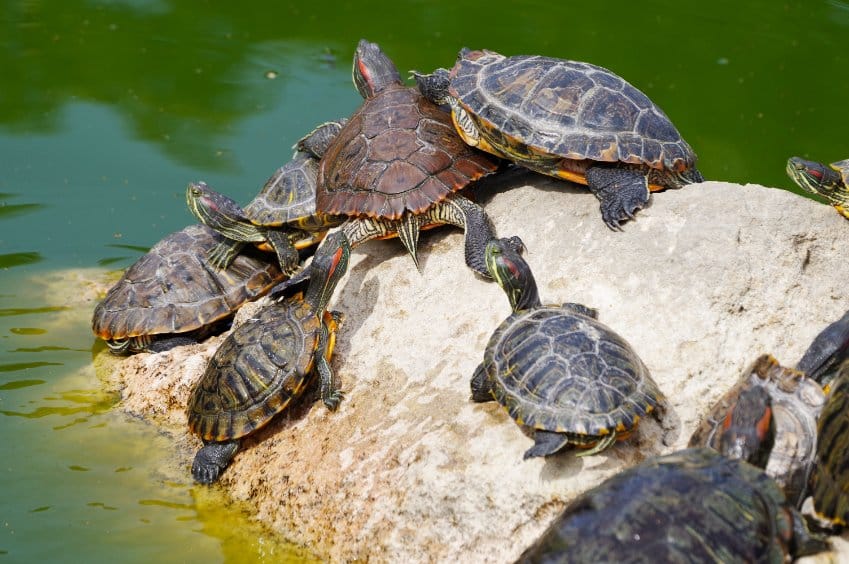By John Salak –
They are slow and steady, and tortoises have won races against hares if Aesop, that old Greek, is to be believed. Well, tortoises and their turtle buddies seem to be able to beat out people as well, at least when it comes to aging.
75 percent of these pokey reptiles age at slow rates, while about 80 percent of the species do a lot better at aging gracefully than modern humans, according to a recent study out of Denmark. Admittedly, turtles and tortoises can’t escape death, but they give it a good run for its money.
The average pet turtle, for example, can live for 10 to 80 years and many turtle species live for 100 to 150 years, the Turtle Conservation Society reports. Some of these critters may even live for 500 years, although the longest-living turtle on record was Alagba, an African spur-thighed tortoise, who died in 2019 in Nigeria at the ripe old age of 344.
Just to put Alagba’s longevity into perspective, she was born 100 years before the Declaration of Independence was signed and about 50 years after the Pilgrims arrived in the New World.
“Contrary to widespread theories of aging, we show that many species of turtles and tortoises have found a way to slow down or even completely switch off senescence (deterioration from aging). It means that senescence is not inevitable for all organisms, said biologist Rita da Silva,” who was at the University of Southern Denmark during the aging study.
The Danish study discovered that these aging patterns are unique to turtles. Some specifics even demonstrate almost no senescence at times.
“We find that some of these species can reduce their rate of senescence in response to the improved living conditions in zoos and aquariums, compared to the wild,” added co-author Dalia Conde.
Why are turtles so lucky? Some general theories on senescence maintain that deterioration appears after sexual maturity as a tradeoff between the energy an individual invests in repairing damages in its cells and tissues and the energy in reproduction.
This theory implies that after reaching sexual maturity, individuals stop growing and start experiencing senescence, a gradual deterioration of bodily functions with age.
The secret to the longevity of turtles is that they keep growing after reaching sexual maturity, and their bodies keep investing in repairing cellular damages, which keeps deterioration at bay.
What does this all mean for humans? Probably not a lot, at least for now. Yes, humans live longer than ever the last century or two. Improved living conditions are the reason. But while people are living longer, their rate of aging hasn’t changed during this time. People, unlike turtles, continue to deteriorate with age, the researchers stressed.
“So, these species, including humans, cannot avoid senescence,” researcher Fernando Colchero concluded sadly.













